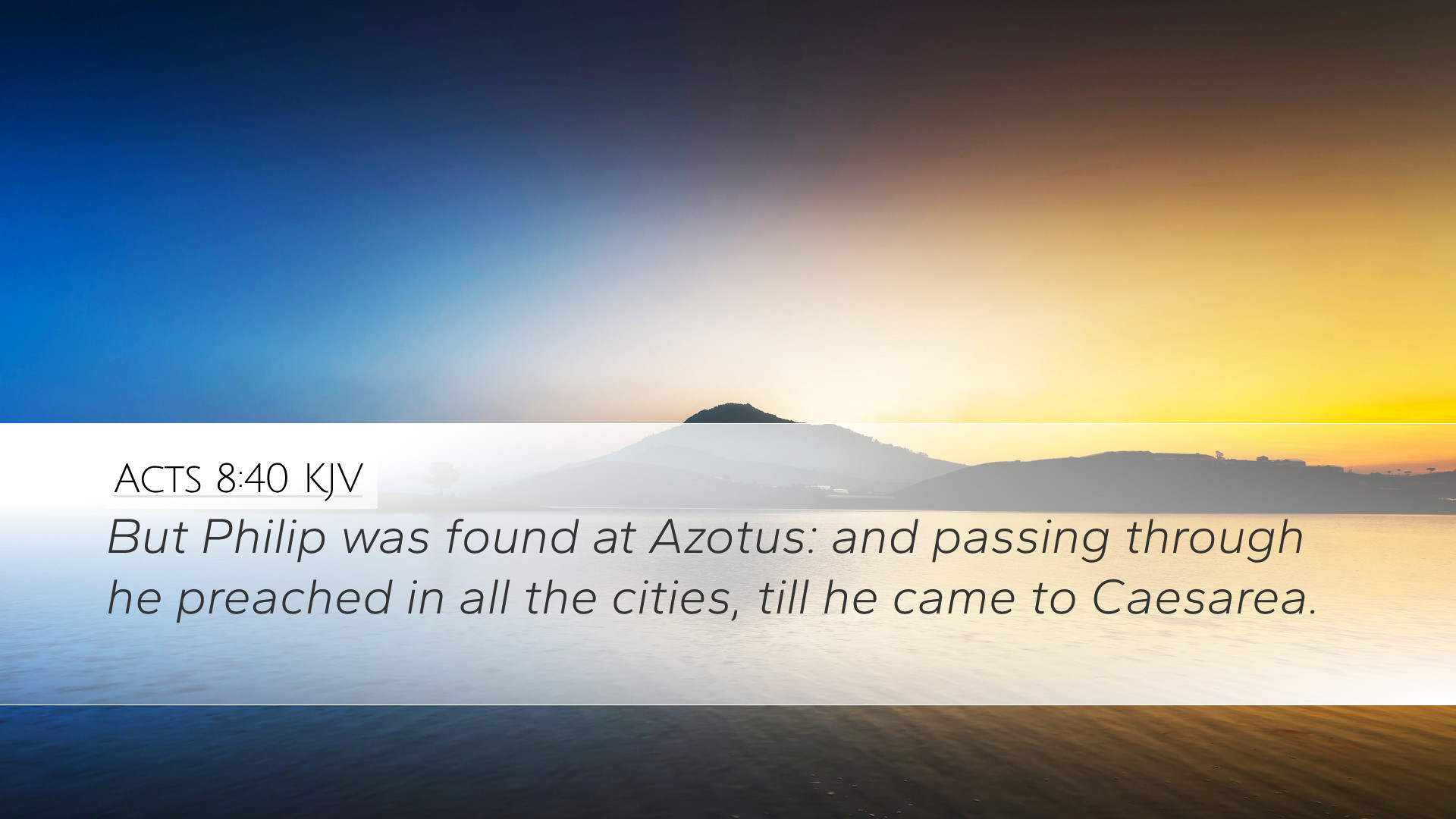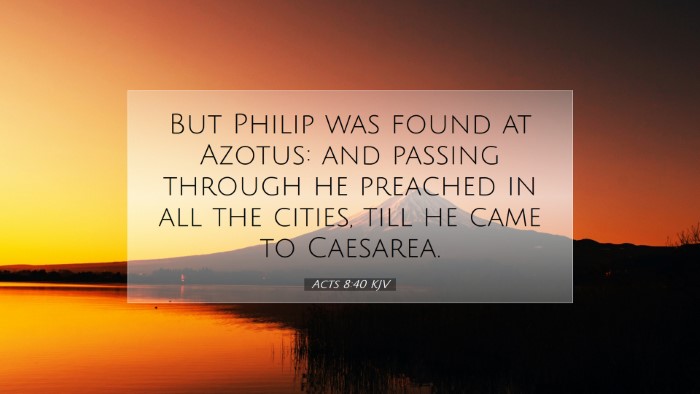The narrative in Acts 8:40 provides a pivotal moment in the ministry of Philip the Evangelist. Following his encounter with the Ethiopian eunuch, Philip is supernaturally transported to Azotus. This text highlights the broader themes of evangelism, divine guidance, and the importance of preaching within the early Church.
The preceding verses detail Philip’s divine appointment with the Ethiopian eunuch, where he explains the scriptures about Jesus. With the eunuch's conversion and baptism, a significant transition occurs as Philip is miraculously taken away by the Spirit.
1. Divine Intervention and Guidance
Matthew Henry notes that Philip's abrupt relocation was not merely a physical transportation, but a clear indication of divine providence. This act exemplifies how God orchestrates the spread of the Gospel. The verse emphasizes that the work of evangelism is not confined to human efforts but is underpinned by divine direction.
2. The Ministry of Philip
Albert Barnes reflects on Philip’s character and highlights his continual commitment to preaching. Upon arriving in Azotus, he did not rest but immediately resumed his evangelistic efforts, showcasing his dedication to the ministry. This serves as an example for contemporary ministers of the relentless pursuit of lost souls.
3. Geographical Significance
Adam Clarke provides insight into the geographical journey. Azotus, also known as Ashdod, is situated on the Mediterranean coast and served as a hub of trade and travel. Phillip's choice to preach in all cities he passed through indicates an understanding of the strategic importance of urban centers for spreading the Gospel message.
4. Preaching in All Cities
The phrase "he preached in all the cities" underscores the expansive reach of Philip's ministry. Like Paul later on, who became known for his extensive missionary journeys, Philip’s approach illustrates the necessity and urgency of preaching the Gospel to diverse populations.
5. Theological Reflections
This verse offers rich theological reflections on the nature of the church and the calling of believers. The early believers were tasked with the Great Commission, and Philip's actions exemplify a model of obedience and responsiveness to the Holy Spirit’s leading. Evangelism is presented not just as an option but as an essential element of Christian life.
6. A Model for Evangelism
The narrative compels present-day readers to consider their own approach to evangelism. The methodological strategy of continually sharing the message of Christ in various contexts serves as a call to current believers. Philip’s example prompts believers to engage with their communities proactively and purposefully.
7. The Importance of Perseverance
Henry emphasizes perseverance in ministry. Philip’s time in Azotus and subsequent travels signify a commitment to remain engaged in spreading the Gospel despite challenges and changes in circumstances. This perseverance is a reminder for today’s ministers and believers to continue their mission, regardless of the obstacles they may face.
Acts 8:40 illustrates the dynamic movement of the early Church led by the Holy Spirit through devoted ministers like Philip. It serves as a reminder of the Church’s mission to evangelize, emphasizing the need for both divine intervention and human initiative in the dissemination of the Gospel. For pastors and theologians, this passage remains a charge to remain willing instruments in God's hands, echoing the call to preach universally and with fervor, much like Philip did in his own time.


